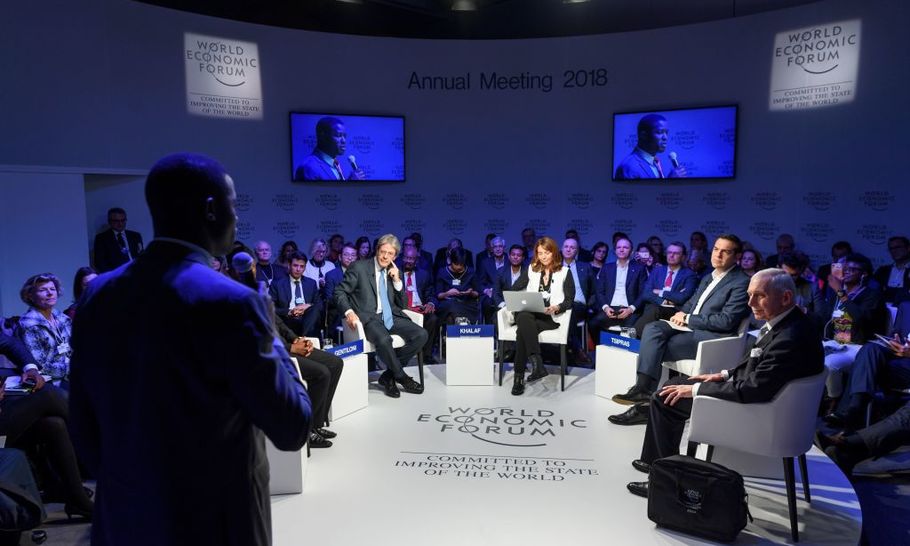Women have finally got to the top in the media, as the industry teeters on the brink

Roula Khalaf at the World Economic Forum in Davos, (FABRICE COFFRINI/AFP via Getty Images)
When Roula Khalaf succeeds Lionel Barber as editor of the Financial Times in the new year, following Barber’s 18-years spent running the paper, she will become the first woman ever to edit the pink pages. She joins an increasingly long list of women in top media roles at the moment. Katharine Viner has edited the Guardian since June 2015 — also the first woman to have that prestigious job. The Daily Mirror is edited by Alison Phillips.
Both the BBC and Sky News have female political editors, as do the Guardian and the Mirror. Of course, there are prominent female presenters, demonstrated perfectly by Emily Maitlis’s Newsnight interrogation of Prince Andrew on Saturday.
This has been a long time coming. For decades, “soft journalism” was the purview of women. Lifestyle, fashion, culture was fine, but the serious stuff — politics, defence, home affairs — was left to the men. It was down to the men to lead publications. Even when women found success in the traditionally more “male” beats, they were still woefully underrepresented.
It’s a welcome change but, unfortunately, one that’s happening as the prospects for much traditional media look increasingly grim. Recently released figures show a continuing drop in people buying print newspapers, for instance. However, it is not all doom and gloom. In this polarised, factitious age, people want trusted outlets that they can rely on.
People around the New York Times have referred to a “Trump bump”: an increase in print and digital subscriber numbers as readers were desperate for a detailed and nuanced analysis of the latest outburst from the White House.
The same is true of Brexit-weary Brits. We increasingly want outlets that are calm and credible and that cut through the noise. And now here in the UK more and more women are leading that coverage.
And then there are the social networks, which have caused much of the polarisation that the more mainstream outlets now confront. The most dominant of them — Facebook and Twitter — are, naturally, run by men, the “tech bros” of Silicon Valley. As it happens, much of the more raucous parts of the print media — the Sun, the Daily Mail and the like — are still edited by men.
Generalisations about the sexes are always dangerous. The point is not that the fairer sex provides better journalism or better media platforms. Nor is it that they take a “softer” approach. The women I’ve named here are not retiring wallflowers.
Khalaf, among other career highlights, wrote an eviscerating piece on Jordan ‘The Wolf of Wall Street’ Belfort. The Sun was arguably at its most boisterous when edited by Rebekah Brooks. However, it feels like both media proprietors and consumers are to some degree looking for something else, a different perspective. And that means getting different people to lead publications.
Women are stepping up during one of the toughest periods that the media business has ever known. Google and Facebook continue to hoover up the advertising revenue that has sustained the print industry since its inception.
Hopefully, if traditional media organisations struggle, the women in charge should not be blamed for it. Having waited decades for this chance, it would be grossly unfair if a systemic downturn in the industry were blamed on the women now battling to keep it afloat.
For now though, we should just be pleased that talented, intelligent, strong-willed women like Khalaf are taking the reins of some of our most beloved outlets. It shows something in journalism is changing for the better. It needs to, because we have never needed those publications more than we do now.





